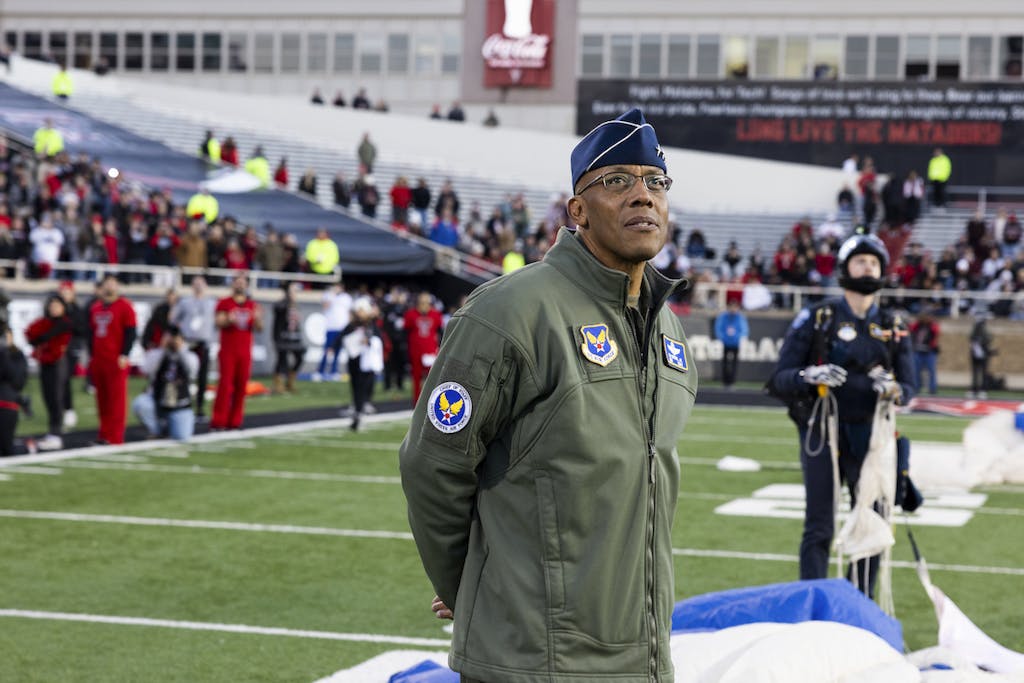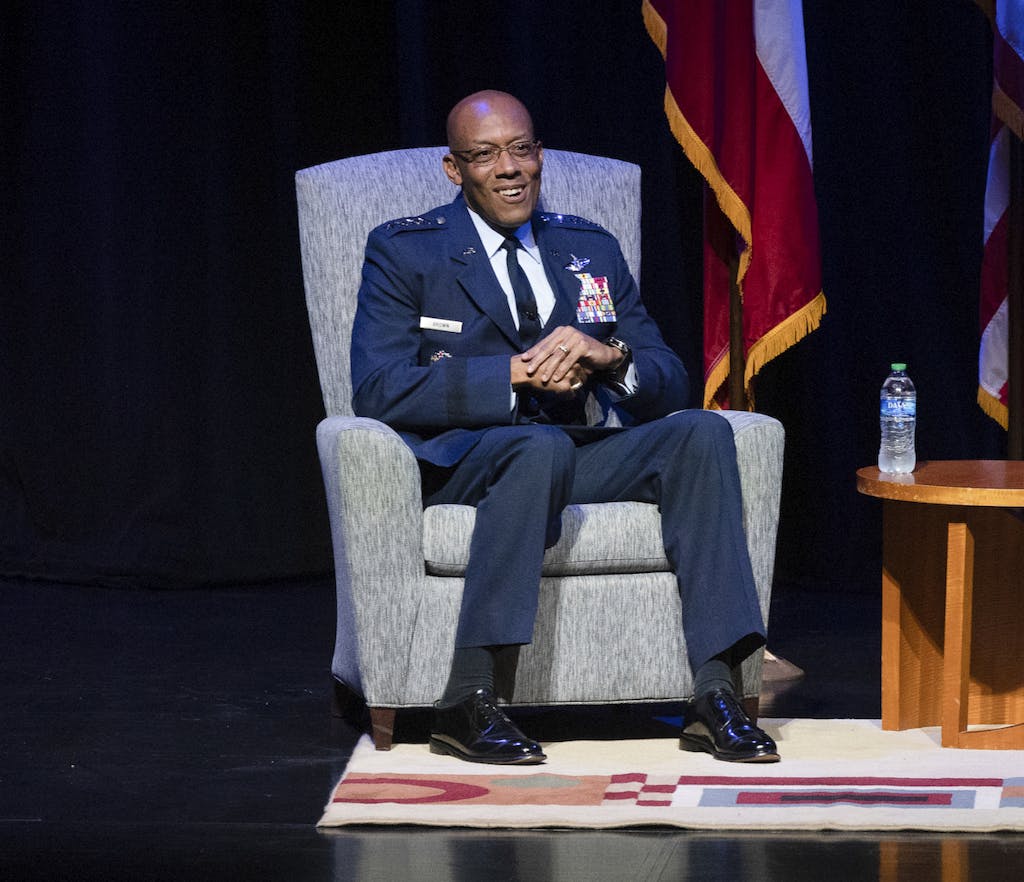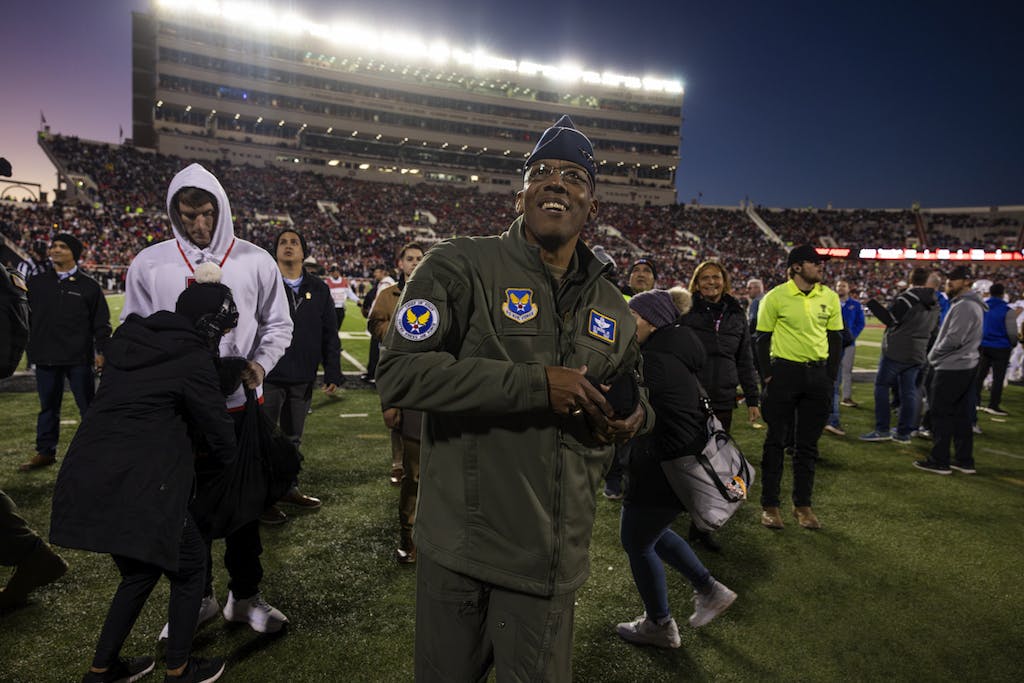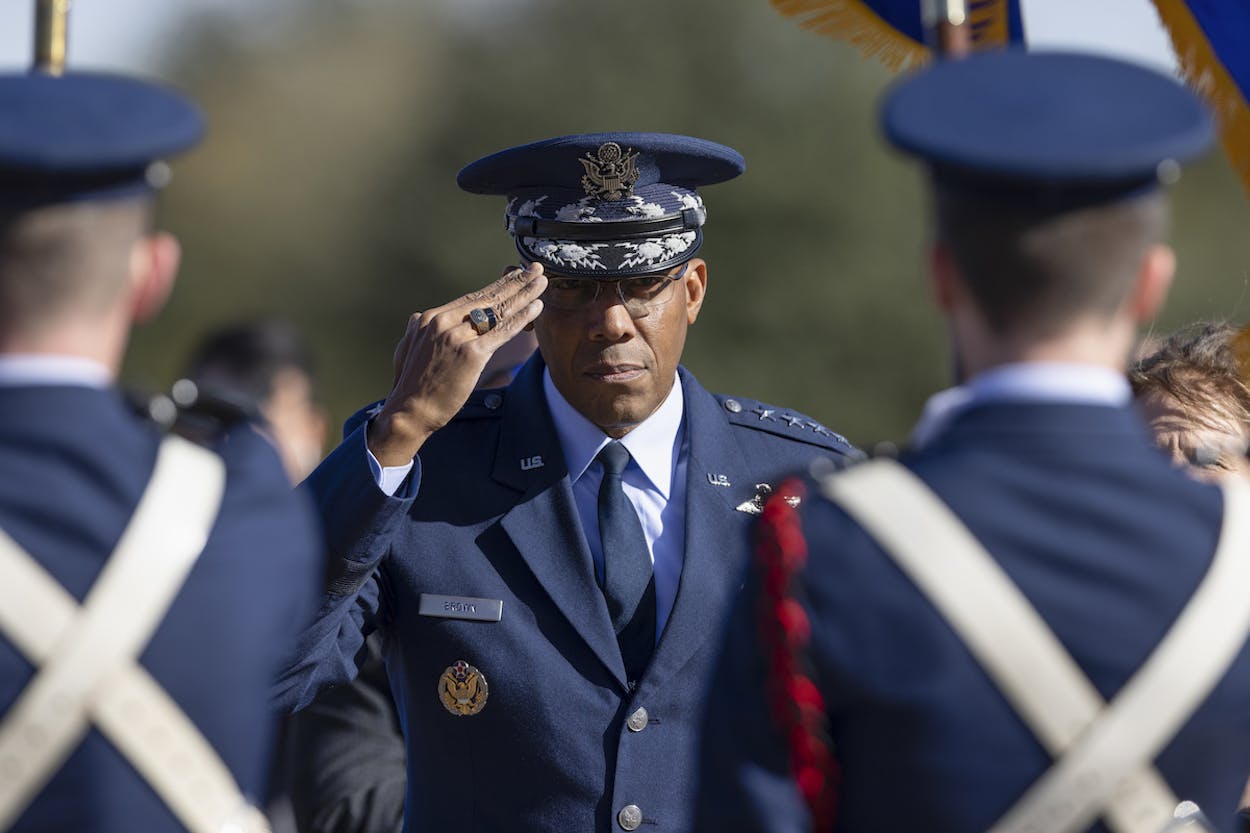Gen. Charles “C.Q.” Brown Jr. arrived at Texas Tech ready to become an architect. But in the four decades since, he’s built far more than structures – he’s built relationships, trust and a rock-solid reputation for success.
And now, as Chairman of the Joint Chiefs of Staff—the highest-ranking and most senior military officer in the U.S. Armed Forces—he’s charged with building even further: creating opportunities for servicemembers while keeping the U.S. military the strongest in the world.
“The ability to serve in our military is full of opportunity,” Brown said. “Each one of our servicemembers has the potential to be sitting in the chair I sit in today. Some of it’s about timing, but it’s also about preparation so that, when your opportunity comes, you’re fully prepared to be competitive. That’s some of what I learned here at Texas Tech.

It’s a position he couldn’t have imagined himself in when he arrived at Texas Tech in the fall of 1980. He’d chosen the university because it was the only one of his college options with an established program combining architecture and engineering.
The plan was to complete his degree, serve four years in the Air Force and transition into a civilian career, but life didn’t go according to plan. Brown failed a freehand drawing course and received a low grade in a design course; to stay in architecture, he’d have to retake the classes, adding another year to his degree.
Not interested in waiting, he switched to civil engineering exclusively, and then a summer camp with the Texas Tech Air Force ROTC sealed the deal. After his first experience flying a plane, Brown decided to become a pilot.
He leaned into academics to ensure he would have the necessary grades to achieve his dream, but he didn’t stop there. Outside of the classroom, Brown built connections and leadership skills.
He played year-round intramural sports, welcomed new students as part of the first-year orientation staff and joined Alpha Phi Alpha, the first intercollegiate Greek-letter fraternity established for Black men. He worked as a resident adviser, participated in ROTC’s Sabre Flight Drill Team and served as the cadet corps commander his senior year.

In 1984, Brown earned his bachelor’s degree in civil engineering and, as a distinguished ROTC graduate, was commissioned into the U.S. Air Force.
So began a career that would take him all over the world. He was an F-16 pilot with the 35th Tactical Fighter Squadron in South Korea. Commander of the 31st Fighter Wing in Italy. Deputy Commander for the U.S. Air Forces Central Command in Southwest Asia. Director of Operations, Strategic Deterrence and Nuclear Integration at the Air Force’s European and African headquarters. Commander of the Pacific Air Forces.
He flew combat operations in Iraq, Libya and Afghanistan. He was the air component commander in one of the most critical times of the U.S.’s Defeat ISIS campaign. Along the way, Brown earned more than 20 major awards and decorations, including the Defense Distinguished Service Medal, the Defense Superior Service Medal, the Legion of Merit and the Bronze Star.

In 2020, Brown attained a remarkable personal achievement, becoming the 22nd chief of staff of the U.S. Air Force—the person responsible for organizing, training and equipping the Air Force’s almost 700,000 airmen. It was also a milestone for the U.S. military: he became the first Black chief to lead a military service branch, and the first Black officer to sit on the Joint Chiefs of Staff since Colin Powell, nearly three decades earlier.
The moment of triumph also carried the heavy burden of immense expectations.
“I’ve had several opportunities where I was the ‘first African American to be …,’” he explained. “Each of these opportunities includes added pressure to perform, so I’m not the ‘first and last African American’ or member of a diverse background to have this opportunity. Like all of our military members, I’ve always simply wanted a fair shot to compete.”
Now, as Chairman of the Joint Chiefs of Staff, he can help ensure that same fair shot for the individuals under his command.
“Texas Tech was the beginning of my professional career; it played a big role in my early development as a leader, and if I could do it all over again, I wouldn’t change a thing,” Brown said. “I’m grateful for every minute of my experience as a Red Raider.”







